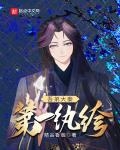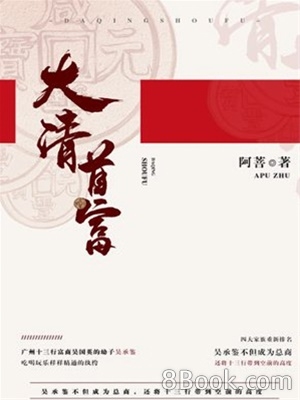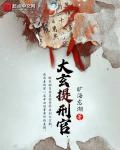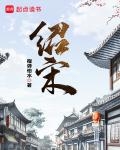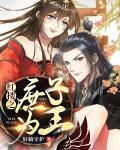Chapter 268: Harvest (IV)
Hong Zhou was very surprised at his feelings. Huo Chong killed his father, Yongzheng. If someone suggested trying to persuade Huo Chong to surrender, even if it was just a temporary measure, even if it was to prepare for cutting Huo Chong into pieces later, Hong Zhou felt that he also wanted to kill the person who made such a suggestion.
However, the one who made this suggestion was Uncle Thirteen. Hong Zhou immediately felt that even though he knew that he was really angry about this suggestion, he still couldn't be angry with Uncle Thirteen.
Hong Zhou did not indulge in such speculation. He thought about it carefully and still felt that something was wrong. After careful understanding, it turned out that Uncle Thirteen wanted to send a signal of easing to Huo Chong, simply to paralyze Huo Chong and buy time for the court to respond.
Hong Zhou could only conclude that this matter could not be made public. Once it was made public, reconciling with the murderer of his father would put heavy pressure on the royal family.
Thinking about it again, Hong Zhou felt that it might not be the case. The Manchus always expressed submission when facing powerful enemies. The stronger the enemy, the more submissive they would be.
He could understand the reason, but when he thought about having to be humble to a thief like Huo Chong, Hong Zhou's chest seemed to burn with a fierce fire, and he couldn't help but stand up and walk back and forth. It was too hateful and too humiliating. Compared with this anger, death was easier to accept.
During the court session, the officials continued to impeach Ortai and Yue Zhongqi, as if these two were the culprits, and as long as they were killed, the Qing Dynasty would be able to turn the tide and wipe out Huo Chong's rebels.
Hong Zhou not only recalled that his father would often curse in anger after reviewing memorials after leaving the court, but he also heard that his father would even curse the court officials in the court, not leaving them the slightest bit of face.
If possible, Hong Zhou also hoped that he could do so. Seeing his fourteenth uncle with a dark face and no words, Hong Zhou knew that he could not do so. It was enough for the upper echelons to know Huo Chong's true strength. If the people below knew, these officials who seemed to want to replace Ortai and Yue Zhongqi would probably surrender immediately.
Hong Zhou really wanted to give it a try, but he knew he absolutely couldn't do it.
After the officials finished their shouting, Hong Zhou said, "Those civil and military officials fought hard but fell into the hands of the rebels. Although they are guilty, we cannot allow the rebels to detain them. I want to send someone to Shandong to ask Huo Chong to release them. Is there anyone willing to do this job?"
No one responded for a while. Hong Zhou glanced at the officials in the court. These people were still making a lot of noise just a moment ago, as if they could swing their weapons and kill Huo Chong immediately. But when it was their turn to face Huo Chong, they all wilted.
After asking again, no one was willing to take on the mission. Hong Zhou suddenly remembered the words, which were very consistent with the current situation.
Zigong asked, "What kind of person can be called a scholar?"
Confucius said: "He who conducts himself with shame, and does not dishonor the king's orders when sent to the four directions, can be called a gentleman."
This is the criterion Confucius proposed for what constitutes a "scholar". A person who has a sense of shame when doing things, serves as an envoy to the princes, and is able to complete the mission assigned by the monarch can be called a scholar.
The officials in the court had no idea what was going on, but they all attacked. They really wanted them to go to the enemy's location to fulfill the king's order. But they kept silent, as if they had all become dumb.
These people are all Jinshi who have read the books of sages and passed the examinations. Is this the only thing they are capable of?
Since these people were not helpful, Hong Zhou simply withdrew from the court. He did not return to the study room, but went straight to the Military Affairs Office.
After entering the Military Affairs Office, Hong Zhou immediately asked, "Who are on duty today?"
Someone quickly told Hong Zhou the list of military ministers on duty today. When Hong Zhou heard the name of Sun Jiagan, the Minister of Works, he immediately ordered, "Send Sun Jiagan here quickly."
When Huo Chong raided the capital, Sun Jiagan went home to observe mourning. He escaped the disaster. After Hong Zhou ascended the throne, he immediately asked him to return to work. However, Sun Jiagan had gone to another place to supervise firearms a few days ago, and he did not expect to come back so soon.
Soon, this minister, who was known for his reputation and frankness, came before Hong Zhou. Hong Zhou told Sun Jiagan about his idea of sending an envoy to Huo Chong. The minister replied, "Your Majesty, please let me think about it."
Hong Zhou had reviewed seven or eight memorials and was just picking up the next one when he heard Sun Jiagan say, "Your Majesty."
Putting down the memorial in his hand, Hong Zhou prepared to listen to what suggestions this minister who loved fame had.
Sun Jiagan said tentatively: "Your Majesty, if the court sends people to Huo Chong, what preparations should the court make?"
Hong Zhou was greatly impressed, "Of course, we should prepare for war."
"If you are preparing for a fight, are you preparing for a real fight or a fake fight?"
Hong Zhou hesitated. He might not be able to win in a real fight, but what about a fake fight? At this moment, Hong Zhou only felt the huge pressure brought by the position of emperor. Holding all the power in the world in one person really makes people feel that they have mastered a huge power. However, although this power is huge, if the enemy is as strong as Huo Chong, even if it is only in Shandong, he can deal with the combined attack of the provinces south of Yinshan Mountain. At this time, even if the power of the world is in one person, he feels the illusion of destruction even more.
Sun Jiagan did not keep the secret, "Your Majesty, I think if we can persuade Huo Chong to surrender, it is not impossible. If we cannot persuade Huo Chong to surrender, we must persuade Huo Chong's capable men to surrender. If we send someone to Huo Chong, we might as well tell Huo Chong's men about this matter. Perhaps there are some thieves among them who are unwilling to be inferior to Huo Chong."
"How should I explain this?" Hong Zhou felt that Sun Jiagan had opened his mind.
At this time, the eunuch quietly walked outside the Military Affairs Office. Hong Zhou glanced at the eunuch, who immediately knelt down and reported, "Your Majesty, the military ministers are already on duty."
Hong Zhou wanted to call Sun Jiagan to talk alone. But he stopped talking and just waved his hand to let the eunuch leave. Not long after, the military ministers came into the duty office. Seeing Sun Jiagan was playing a game to Hong Zhou, they also listened quietly beside him.
Sun Jiagan did not say anything clichéd, but simply pointed out the current situation. Huo Chong must have many very close and capable people, but no regime is so simple. Since Huo Chong is a traitor, there must be many traitors under his command who joined Huo Chong for the purpose of making a name for themselves.
Huo Chong is a truly evil person, and an evil person must be very wise and brave. It is not easy to deceive Huo Chong. So we have to start with Huo Chong's subordinates and let some people who expect to get a meteoric rise from Huo Chong join the court.
As long as there are such people, Huo Chong's subordinates will definitely be divided. Once the rift appears, the court can take advantage of it to make Huo Chong's subordinates continue to split and disintegrate.
Hong Zhou felt that he did not quite understand, so he looked at another man known for his uprightness, Liu Tongxun. Liu Tongxun did not wait for Hong Zhou to name him, and explained: "Your Majesty, the ministers in the court are all scholars. They know the hardships of studying, and although they want to be promoted, they know that it is fate, and it is not what the ministers want to be promoted. However, Huo Chong's subordinates are all poor people. Suddenly they have become rich and powerful, which will only make them greedy. As long as Huo Chong fails to give them what they want, the court will instigate them a little, and those people may defect to the court. As long as they come, they will naturally tell everything they know. The court has plenty of means to make them feel that they have got what they want."
After hearing this, Hong Zhou felt as if he had seen something strange. Liu Tongxun was considered to be very upright and a very honest minister. He came up with such a sinister strategy, which was really different from his usual reputation.
But think about it, Liu Tongxun was a person who carefully studied how to suppress the rebellion in Shandong during the Shunzhi period. Based on previous experience, Liu Tongxun suggested using the Mongolian Eight Banners cavalry to enter Shandong to kill people, which actually played a very good role.
At least at that time, many people were killed, causing panic in Huo Chong's territory. It was considered one of the few successful cases among the many policies against Huo Chong, the bandit.
Officials who can propose to pull up the dikes, cause floods, and use cavalry to massacre ordinary people are not officials who love the people. They can even be called butchers.
It is not difficult to expect a butcher to be loyal, but it always feels very inappropriate to expect a butcher to be moral.
Hong Zhou did not find fault, but just asked Liu Tongxun, "In this case, do you have any suitable candidates?"
Liu Tongxun replied: "He must be a man of courage and insight."
"You have to be knowledgeable and be able to have a conversation with Huo Chong."
"He also has to have similarities with Huo Chong." Other military ministers followed up with suggestions.
The military ministers were all talented people carefully selected. Although their words were brief and to the point, they were all well-considered opinions.
Soon, a rough range of candidates was proposed. They had to have similar experiences to Huo Chong, be somewhat bandit-like, be courageous, and be able to see through many things. They had to be able to cooperate with the gangs and suppress them at the same time.
After the conditions were put forward, everyone began to select people who met these conditions from among the officials. Finally, the Minister of Personnel Xinggui's eyes suddenly lit up, "Your Majesty, I have thought of someone."
It was July, and the grain in Shandong was ripe. The entire Han regime began the intensive harvesting work.
Huo Chong no longer has the energy to manage so many details. He can only issue orders to various parts and make judgments and reactions to the responses of each department.
Fortunately, all the departments put forward material requirements. The most common requirement was that after one or two years of hard work, there was a gap in the supply of sickles as consumables, and the hot air ball machines, as the pioneers of agricultural mechanization, had also suffered great wear and tear, requiring a large number of personnel to maintain or replace damaged hot air ball machines.
Huo Chong has always believed that if a problem can be solved with money, it is not a problem. In this situation, the problem must be solved by the production capacity of the industrial sector.
While they were busy here, someone suddenly came to report that the Qing Dynasty had sent a special envoy to request a meeting.
Huo Chong's first reaction was to have the so-called special envoy cut into pieces. However, this thought only flashed through his mind a few times before Huo Chong suppressed it. As the saying goes, when two countries are at war, envoys should not be killed . As a basic courtesy, even the vicious and brutal Mongols knew to protect the enemy's envoys.
The Han regime considered itself a civilized nation, so it was a bit too barbaric to kill the envoy directly. However, Huo Chong still ordered the current head of the guard regiment, Wang Donglu, to immediately drag out and chop the envoy into pieces if Huo Chong found anything unbearable.
After giving the order, Huo Chong ordered the Qing envoy to be brought in with an intolerant attitude.
The visitor was a spirited old man. He bowed to Huo Chong when he saw him.
Huo Chong was about to curse when the head of the guard Wang Donglu shouted, "You bastard, kneel down and salute me."
Wang Donglu was from Sichuan, and when he cursed at Huo Chong, he laughed. The murderous aura dissipated a lot.
I thought the envoy would refute angrily, but he bowed again, "Master Huo, don't rush to kill me. When I came here, I knew that if I said something that didn't suit Master Huo's wishes, I would die. I just want to ask, Master Huo, why do you want me to kneel down and salute?"
Huo Chong didn't expect the other party to be so clever, and couldn't help asking, "What's your name?"
"My name is Li Wei." The man replied.
"Li Wei?!" Huo Chong was shocked. There were quite a few people with this name. There were at least two company commander-level officers on Huo Chong's side with this name.
However, there was a famous official named Li Wei in the Yongzheng era, but there was really only one of them.
So Huo Chong asked about Li Wei's origins. Li Wei did not hide anything and told Huo Chong about his origins.
On the first day of the first lunar month in the 27th year of Emperor Kangxi's reign (February 2, 1688), Li Wei was born in a relatively wealthy family in Fengxian County, Jiangsu Province. In the 56th year of Emperor Kangxi's reign (1717), Li Wei donated money to become a deputy minister, and soon after, he entered the court as a deputy minister of the Ministry of War. In the 58th year of Emperor Kangxi's reign (1719), Li Wei was appointed as a doctor of the Ministry of Revenue.
After Yongzheng ascended the throne, he immediately appointed Li Wei as Zhili Post Commissioner, but before he took up the post, he was appointed Yunnan Salt Post Commissioner. During his tenure as Salt Post Commissioner, Li Wei made remarkable achievements. Soon after, in the second year of Yongzheng's reign (1724), Li Wei was promoted to Governor, in charge of the province's finances and taxes, but he still concurrently managed the salt business.
In the third year of Yongzheng's reign (1725), Li Wei was promoted to the governor of Zhejiang. In the fourth year of Yongzheng's reign (1726), Li Wei concurrently served as the salt administration envoy of Liangzhe, sorting out the salt administration and investigating and punishing the illegal salt trafficking. In the fifth year of Yongzheng's reign (1727), Li Wei was promoted to the governor-general of Zhejiang, in charge of the governor's affairs.
Huo Chong's impression of the historical Li Wei is that he was a bondservant in Yongzheng's family in the works of art. But this Li Wei was a donated official, which is very different from the works of art.
But literary works are probably fabricated, Huo Chong doesn't dare to believe it. But some things are not wrong.
Huo Chong asked, "Li Wei, are you good at catching thieves?"
Li Wei immediately responded, "Mr. Huo, you are too kind. I just know that everyone is just trying to make a living, so brothers in the underworld should give me some face."
"Stop talking nonsense. I just want to ask you if you are good at catching bandits." Huo Chong urged.
Li Wei thought about it and suddenly laughed, "Haha, you are worthy of being Master Huo. I just lived with the Shen family. I didn't expect that Master Huo had heard of it."
After the polite words, Li Wei told about his own history in this regard.
During the Qing Dynasty, more than a dozen salt districts were divided, and Zhejiang Salt District was one of them. Zhejiang salt was sold in Zhejiang, Jiangsu, Anhui, and Jiangxi provinces. However, the system in the Qing Dynasty was rigid. In places near the Lianghuai Salt District in Zhejiang Salt District, people could not buy the nearby cheap Lianghuai salt, but could only buy the expensive Zhejiang salt. As a result, cross-regional smuggling was prevalent and official salt was not sold smoothly. Li Wei strengthened the anti-smuggling team and focused on cracking down on big salt smugglers with strong organizations. Shen was a famous salt smuggler with hundreds of subordinates and several large ships. He often defeated officers and soldiers and was very arrogant in smuggling. Li Wei appointed Han Jingqi to fight with Shen and finally captured him.
Although Li Wei's words were simple, Huo Chong was already able to confirm that the person in front of him was indeed the Li Wei in history.
Looking at Li Wei's career, it is not difficult to find that he was in charge of or concurrently in charge of the salt administration of a region for a long time. As early as the first year of Yongzheng's reign, Li Wei was appointed as the Yunnan Salt Post Road. A year later, he was promoted to the governor but still concurrently in charge of salt affairs. Two years later, Li Wei, who had already served as the governor of Zhejiang, was ordered to concurrently serve as the important post of the Liangzhe Salt Administration. This shows that Li Wei was very good at managing salt administration and cracking down on smuggled salt.
Since the other party was a famous minister of Yongzheng, Huo Chong instinctively wanted to kill Li Wei.
With a stern face, Huo Chong said: "You are a dog slave of the Manchu dogs. When you see your dog master, you always kneel like a dog. When you see us upright Han people, you still want to pretend to be like a human. You think too much. Kneel or not, you dog, make your choice quickly."
Li Wei was originally smiling, but he couldn't hold it in any longer. However, Li Wei didn't get angry. He lifted his clothes and knelt down to Huo Chong. "Master Huo, I kneel to you just to complete my mission. As for what Master Huo said, I won't argue with you. It's just that Master Huo, you think you are a hero, but you humiliate others like this, which doesn't seem like a hero's behavior."
"Are you, a dog, qualified to ask me that? Haha." Huo Chong sneered.
Li Wei answered frankly, "If Master Huo wasn't afraid of me, he wouldn't have done this. Yes, I am good at catching bandits, and Master Huo's behavior is really like that of a bandit. But I don't understand why Master Huo is so afraid of me. If Master Huo wants to chop off my head or even cut me into pieces, I still want Master Huo to explain it clearly. Master Huo is a man like him, so he shouldn't be unaware of why he wants to kill me, right?"
When Wang Donglu heard Li Wei being so arrogant, he immediately looked at Huo Chong. As long as Huo Chong gave the order, he would immediately drag Li Wei out and cut him into pieces.
However, Huo Chong was moved by Li Wei's words. Although he knew that he had a strong desire to kill the famous officials of the Yongzheng Dynasty, Huo Chong felt that killing them all would solve the problem. But Li Wei's words gave Huo Chong a new idea. It turned out that Huo Chong's impulse was actually fear.
"Get up." Huo Chong said to Li Weiming.
Then he said to the guard, "Give him a chair."
Li Wei sat down calmly, showing no fear at all. Huo Chong was a little impressed.
After thinking for a while, Huo Chong sneered, "Brother Li, I think you are right. I am indeed a little afraid of those whom Yongzheng favors. Brother Li, please point these out to me. Otherwise, I think I am only afraid of Nian Gengyao."
Li Wei laughed and said, "Haha, this is really a case of a hero recognizing a hero. General Nian was also quite afraid of Master Huo before he died. But what exactly is Master Huo afraid of? Can you tell me?"

